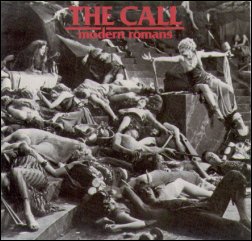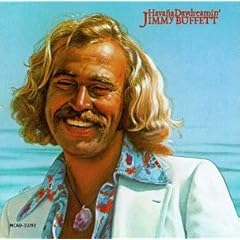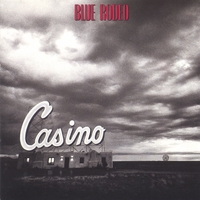
Album: Luka Bloom, The Acoustic Motorbike, 1992
Acquired: Bought in 1992 from the music store that was just off the food court in the New River Valley Mall
Best Track: "Mary Watches Everything"
Lasting Memory: Absolutely blasting the title track of this album while driving west from Blacksburg on VA 460 to interview a biology professor at Bluefield State College during early October 1994. The leaves on the mountainsides were at the peak of their color, and this ode to bicycling through the west central cliffs of Ireland made an excellent counterpoint to speeding through the Eastern highlands of the United States in a
1978 Oldsmobile Delta 88.
I was interviewing the biology professor in West Virginia because he spent a good bit of his free time publicly debating
young Earth scientific creationists and trying to debunk the evidence the creationists presented for their claims that our planet is just a little over 6,000 years old (and
counting down to Armageddon). I was curious as to why the prof, whose name I can't remember and which would require a couple of hours of digging through old files to find, would choose to reenter a debate that had been all but won by Thomas Huxley more than 100 years before, especially since he could never convince his opponents that they were looking at everything all wrong.
The best and only straight answer I got from the biology professor was, in so many words, "They are misusing science. I have to defend the truth."
It makes sense that the prof would defend capital S "Science" more than evolutionary theory because creationists are not in any way committed to following the scientific method and being bound to accepting the evidence that applying the method turns up. The creationist start with a conclusion rather than a phenomenon and hypothesis and ignore or distort anything that doesn't support their preconception.
What I was also hoping to hear from the biology professor was at least a tiny bit of acknowledgement that committing to science is a pretty big leap of faith in its own right. One must accept the validity of the three laws of thermodynamics in order to conceive of a space shuttle, after all. NASA engineers aren’t going to test the laws; they’re just going to accept them and work from there. Also, and I realize this requires a great deal more discussion, allow me to say, "Show me your quark -- not an equation or a pattern of interference on an electrograph -- an actual quark, and I'll show you my God."
Both the participants in a face-to-face scientific creation-evolution debate are almost always playing fairly and unfairly. The creationist isn't being fair because he is exploiting the audience's deference to and misunderstandings of science to support his argument. He is being fair, though, because he is arguing from faith. He is being true to his school of thought, as it were.
The evolutionist is being fair to herself and the audience by arguing from science and (if she's any good) attempting to use metaphors and examples that make the scientific case clearly understandable to the audience. She will be unfair to her opponent and quite a few in the audiences if she won't admit a role for a divine Creator.
What got me thinking along these lines, in addition to slipping in
Acoustic Motorbike, was yesterday's bombshell from
Pat Robertson that he is supporting Rudy Giuliani for president. The announcement during a speech at the National Press Club makes Robertson either one of Christendom's great hypocrites or a force for evil in this world great than Steven Spielberg, Oprah Winfrey, and Dan Brown combined.
Robertson portrays himself as a fundamentalist Christian who relies upon the text of the Bible to guide him in living a life free of sin and full of love for his fellow man. I'll resist the temptation to ask what parts of Robertson's Bible sanctioned his business deals with blood diamond mining companies, his ownership of a stable of high-stakes race horses, or his calls for the assassination of Venezuelan President Hugo Chavez.
I will ask how Robertson could have studied the Bible and decided that it made setting up a police state that offers few if any social services to its citizens something Christians should work for actively. Robertson said in yesterday's speech that Christians' "second goal should be the control of massive government spending and crushing federal deficits." He also said Christians should vote for Giuliani because the former New York mayor was "a valiant crime fighter" who "understands the need for a conservative judiciary."
Robertson has either never read or perversely chosen to ignore the text and teachings of the Bible to "render unto Caesar," "be kind to those who hurt you," and "judge not lest you be judged." Admittedly, these ideas come from the New Testament and contradict a lot of what the Old Testament has to say about "eye for an eye," but did Jesus not say, "I come not to fulfill the law but to make a new law?" And hasn't Robertson purportedly accepted Jesus as his personal Lord and Savior?
Worse than intentionally mis-taking the Christian message, though, is that Robertson has made himself an apostate to his own cause by embracing Giuliani's candidacy. Robertson is staunchly antiabortion, while Giuliani supports a woman's right to choose. Robertson is virulently homophobic, while Giuliani advocates equal treatment under law for homosexuals. Robertson is pro-family, while Giuliani is twice divorced and barely on speaking terms with his children. Plus, Giuliani is a mackerel-snapping papist, although he is somewhat less than observant.
At least Robertson and Giuliani both support the death penalty. Robertson must see "Thou shall not kill" as a rule with statutory limitations.
I'm pig-biting mad right now. My keyboard is flecked with the froth flying from my lips. I hope Robertson enjoys his daily commute between the fourth and fifth inner circles of the Eighth Circle of Hell, which a
Wikipedia author helpfully describes thusly,
Bolgia 4: Sorcerers and false prophets have their heads twisted around
on their bodies backward, so they can only see what is behind them and not into
the future.(Canto XX)
Bolgia 5: Corrupt politicians (barrators) are immersed in a lake of
boiling pitch, guarded by devils ... . (Cantos XXI through XXIII)
"Okay, Ed," anyone who's still reading must be asking by now. "You think Robertson is a ten-pound turd in a one-gallon Tupperware container without a lid that was left on the kitchen counter in front of the cookie jar. But what do you think about Acoustic Motorbike. You owe me some musical criticism, dammit!"
Acoustic Motorbike is pretty good. If I had to assign it to a subgenre, I'd say it is pop folk along the lines of Shawn Colvin and Edwin McCain. It is worth pointing out that Luka Bloom is the much younger brother of stereotypically Irish Republican folk singer Christy Moore. But like the stage name would indicate, the Bloom is not very much like his brother musically. The biggest difference is that Bloom has a sense of humor. Acoustic Motorbike includes a fairly faithful cover of L.L. Cool J's "I Need Love."
ADDENDA
Pat Robertson obviously has some pull with at least one of the embodiments of good and evil in Western traditions. I had this post all typed out and ready to post about an hour ago, and as I was copying it to paste into Word(!) for spell-checking, it disappeared from my screen altogether. I had to recreate the post from memory. The original jokes and insults were so much better, too. Shame.
Up Next: Blue Rodeo, Casino, 1990
Word Count to Date: 7,205





















